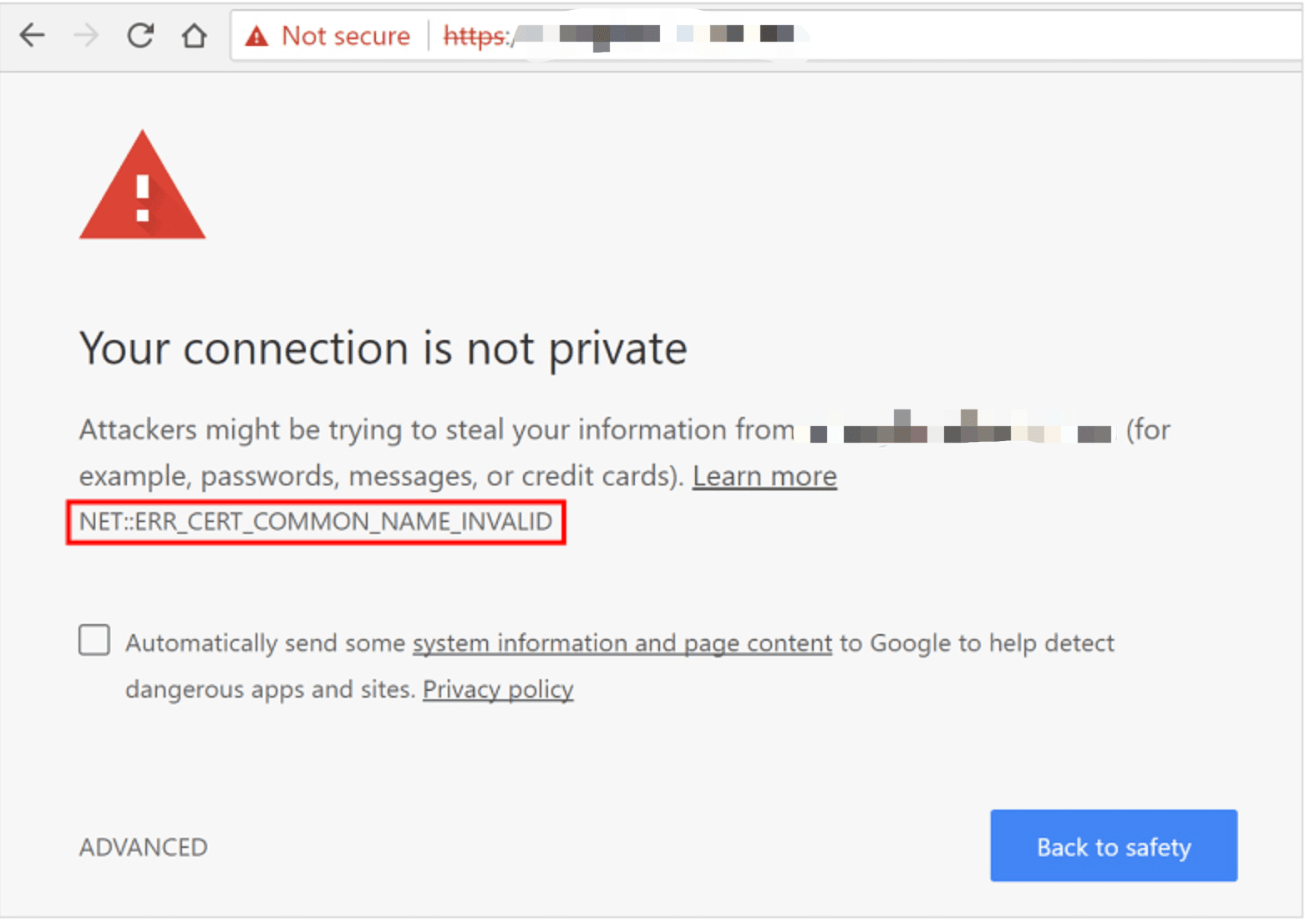How to Enable HTTPS Access For a Website With Free Certificates?

Why is it necessary for websites to implement HTTPS?
HTTPS (Hyper Text Transfer Protocol Secure) is the secure version of HTTP. There are several reasons why we need HTTPS:
- Data Encryption: HTTPS uses SSL/TLS protocols to encrypt data, ensuring its security during transmission and preventing it from being intercepted or tampered with by third parties. This is particularly important for websites handling sensitive information such as credit card details or login credentials.
- Identity Authentication: HTTPS verifies the server's identity using SSL certificates, preventing users from being redirected to fake websites.
- Protecting Website Integrity: HTTPS prevents third parties from inserting advertisements or malicious code into web pages.
- Improved Search Rankings: Search engines like Google consider HTTPS as a positive ranking factor. Websites using HTTPS tend to have higher rankings in search results.
- Enhanced User Trust: Modern browsers display a secure lock icon in the address bar to indicate that a website is using HTTPS. This helps to build trust with users.
Whether it's to protect user data, enhance website credibility and search rankings, or gain user trust, implementing HTTPS is crucial.
The importance of certificates in HTTPS
The relationship between HTTPS and certificates is very close. In HTTPS communication, certificates play a crucial role and are primarily used for the following two purposes:
- Server Identity Authentication: When you visit an HTTPS website, the server provides your browser with a certificate. This certificate contains the server's public key and some information about the server, such as its name and validity period. The certificate also includes a digital signature signed by a trusted Certificate Authority (CA). The browser checks this digital signature to verify if a trusted CA issues the certificate and if it has been tampered with. This process ensures that you are communicating with a genuine server and not a fake one.
- Data Encryption: In HTTPS communication, the client and server use the public key from the certificate to negotiate a symmetric encryption key. This key is then used for subsequent data encryption and decryption. This process ensures that even if the data is intercepted by a third party during transmission, they cannot decrypt it because they do not have the key.
Therefore, certificates play a crucial role in HTTPS communication, serving both to authenticate the server's identity and protect the security of the data.
Why do certificates expire?
SSL/TLS certificates typically have a validity period ranging from one to two years, depending on the Certificate Authority (CA) and the type of certificate purchased. Some CAs also offer shorter or longer validity periods.
There are several reasons why certificates have expiration dates:
- Security: Encryption technologies evolve over time, and algorithms that were once secure may become vulnerable to attacks. By setting an expiration date for certificates, websites are forced to regularly update their certificates and use the latest, more secure encryption technologies.
- Information Updates: Certificates contain information about the server, and this information may change over time. Expiration and renewal of certificates ensure the accuracy of this information.
- Revocation Management: If a certificate is stolen or its private key is compromised, the certificate needs to be revoked. Expiration of certificates helps to alleviate the management burden of Certificate Revocation Lists (CRLs).
Therefore, certificate expiration is an important security mechanism that helps maintain network security and information accuracy. When a certificate approaches its expiration date, website administrators need to promptly update the certificate to avoid any disruption in website services.
For industries and users with multiple domains, certificate management can be a headache, especially for e-commerce, software development services, and individual developers with multiple websites. Having numerous domains can lead to the challenge of not knowing when certificates expire and the hassle of applying for and deploying them one by one. This process is time-consuming and requires significant manpower.

Using free certificates in Tencent EdgeOne
To help our users address the issue of HTTPS access and enable all websites to enjoy the benefits of HTTPS, further promoting inclusivity on the internet, EdgeOne offers free certificates sourced from Let's Encrypt. This greatly simplifies the implementation of HTTPS access, eliminating the need for manual application, deployment, and maintenance of certificates.
Users can easily enable HTTPS for their websites through simple operations while enjoying automatic renewal, additional access acceleration, and security protection services. Compared to purchasing paid SSL certificates or applying for free certificates from other organizations, EdgeOne offers a one-click application, full-process management, and worry-free maintenance, making the process effortless and hassle-free.
| Certificate Type | EdgeOne Free Certificate | Paid SSL Certificate | Self-Applied Free Certificate |
|---|---|---|---|
| Cost | Free | Additional fee required | Free |
| Application | Automatic application and validation completion | DNS validation or HTTP validation required during application | DNS validation or HTTP validation required during application |
| Deployment | Automatically deployed to EdgeOne, no need to deploy on the the origin server | One-click deployment within the same cloud resources, manual deployment required for other resources | Manual deployment to the origin server, e.g., within a cloud VM |
| Updates | Automatic updates | SSL certificates purchased from Tencent Cloud can be automatically renewed/updated if managed, other sources require manual updates | Option 1: Apply for a new certificate and manually update before expiration; Option 2: Maintain code scripts for automatic application/update of free certificates |
| Issuance Speed | Immediately after validation completion | Depending on the certificate type, as fast as 1 business day | Immediately after validation completion |
| Certificate Trustworthiness | Average | High | Average |
After integrating with EdgeOne and using the free certificate, when your clients access EdgeOne, their connection will be encrypted with HTTPS, ensuring the security of data transmission. The origin server will not be exposed externally after connecting to EdgeOne, and the connection from EdgeOne to the origin server will not affect browser trust or the security of user access. Depending on your business needs, you can also deploy an HTTPS certificate on the origin server after integration, enabling end-to-end HTTPS access by using HTTPS for origin communication.
Practical Steps for Free Certificates Setup
After completing the website integration on EdgeOne, follow these steps to quickly connect to EdgeOne and complete the process of applying for a free certificate.
- Log in to the EdgeOne management console: Log in the console and select the site you want to configure to enter the site management.
- Go to the domain management section and click on the edit button in the HTTPS column for the domain that needs certificate configuration. This will open the HTTPS certificate configuration.
- In the certificate configuration, select "Apply for a free certificate" and click OK to complete the application and installation of the free certificate.
After deployment, you can view the deployed certificate information in the domain management list page. EdgeOne's automatic renewal service will automatically apply for renewal before the certificate expires, eliminating the need for manual intervention.
Furthermore, EdgeOne provides comprehensive technical support to ensure secure HTTPS access for your website in future visits.
Conclusion
Tencent EdgeOne offers a rich set of features in the console, including DNS resolution, site acceleration, security protection, rule engine, Layer 4 proxy, edge functions, log service, data analysis, and more. This comprehensive platform helps provide one-stop security protection and content acceleration at the edge. With flexible rule configuration and edge functions, it can assist in customizing business response and origin rules based on specific needs, enabling flexible edge business processing.
We now offer a free trial, welcome to contact us for more information.

